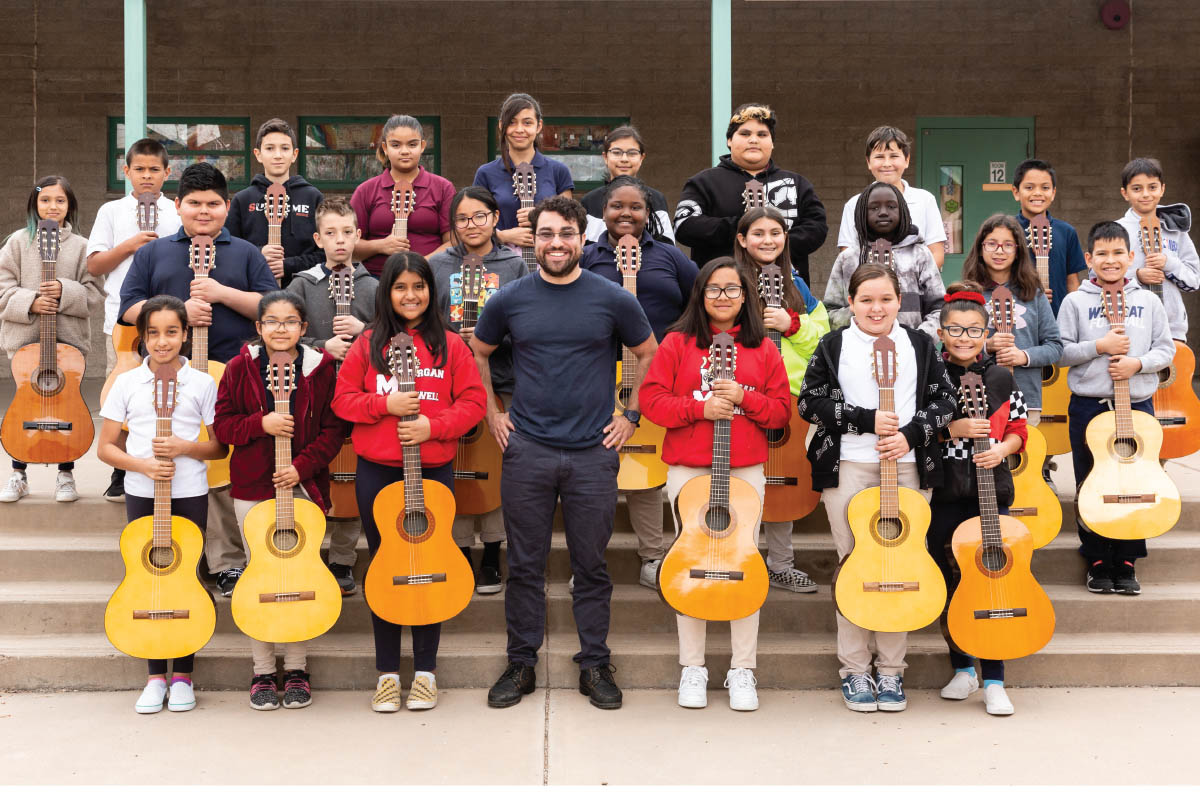
Lovell Foundation Closes after $50 Million in Gifts
30 Years of Giving
By Christy Krueger
When David and Lura Lovell were negotiating the sale of his family businesses in 1993, they realized the proceeds would be substantial enough to start a foundation that could make a significant impact.
Thirty years later, after granting a total of $50 million to various efforts, the David and Lura Lovell Foundation has closed, but its positive influence on lives continues.
The Lovells’ daughter, Ann Lovell, was involved with the foundation from the beginning.
“During the sale (of the businesses), Dad was diagnosed with lung cancer and died three months later,” Ann said. “He left my mother and me to finish the sale of the companies.”
An attorney suggested Lura create a board of advisors for the Lovell Foundation that was not exclusively family. “More than 50% were non-family members. That’s unique and smart,” she said.
Organizations that were in line with the family’s interests were the first to receive Lovell Foundation funding. “My mom advocated for mental health and integrative medicine, the arts and youth education,” Ann said. “We started participating in helping integrative health move to the surface. We worked to elevate doctors and by funding infrastructure.”
Her mother joined the first board of Dr. Andrew Weil’s foundation and Weil holds the Lovell-Jones Endowed Chair in Integrative Rheumatology.
One of the ways the foundation supported mental health and end-of-life issues was by financing documentaries on the topics. This included the 2019 documentary “Ernie and Joe: Crisis Cops,” on the San Antonio, Tex., police department’s handling of mental health calls.
Ann was passionate about helping organizations succeed by supporting their goals. “We also partnered with other foundations to help them raise money.”
She’s thankful for the hard work of Christina Rossetti, interim director and consultant, and John Amoroso, executive director, who were both hired in 2015 and were instrumental in moving the foundation forward.
One of Lovell Foundation’s local partnerships was with Lead Guitar, a Tucson organization founded by Brad Richter in 2000 to bring music back into schools. Richter was a touring guitarist when he started visiting schools and creating programs for teaching music. “I wrote curriculum for guitar that included a guitar expert co-teaching with a teacher who was not a guitarist.”
The format took off, and in 2007 Lead Guitar became a non-profit. Today, it continues to rapidly expand its mission to teach guitar to students in third through 12th grade.
“We’re only in schools where 80% of students get free lunch, where students can’t afford lessons outside of school,” Richter said.
The guitar program is in 17 schools in the Tucson area, 113 nationwide, and is still growing. The collaboration with Lovell Foundation started with small gifts, Richter said.
“In 2018, we got a large grant for three years of $300,000 to refine how we work with schools,” Richter recalled. “That led to a $1 million gift in 2021 for five years for strategic national growth.” In total, Lead Guitar received just under $2 million in grants from the foundation and also inherited Lovell’s office building.
One of Richter’s favorite success stories that he attributes to Lovell Foundation’s assistance is about a youngster named Christian.
“When he joined guitar class, he was in special education. He was expelled from school because of his temper,” Richter said.
But Christian took an interest in guitar and his teacher realized he had a serious hearing impairment, so the school bought him hearing aids. “He went from being ostracized to playing guitar in the lunchroom,” Richter said. “Suddenly, he became a friend and a star. His grades went from failing to Bs and As. Now he’s a music teacher and does gigs.”
Richter strongly believes Lead Guitar’s accomplishments are directly tied to the Lovell Foundation’s support, and he says the effect is permanent. “We feel proud to help the legacy of the foundation and to push on with their and our mission,” he said. “Everything we do is impacted by their giving and advice. We’re sad not to have them now as a constant collaboration and conversations. They’ll be missed.”
Talks of sunsetting the foundation began in 2017.
“It was a thoughtful conversation,” Ann said. “When it’s a family foundation, do people want to step forward? Some foundations have family members who want to continue, some don’t. My mother wanted it to end with me. She didn’t think anyone would be as involved as me. We wanted to go out beautifully.”
Pictured above – Alfredo “Freddy” Vazquez Regional Director for Tucson, AZ with Morgan Maxwell Lead Guitar Students





